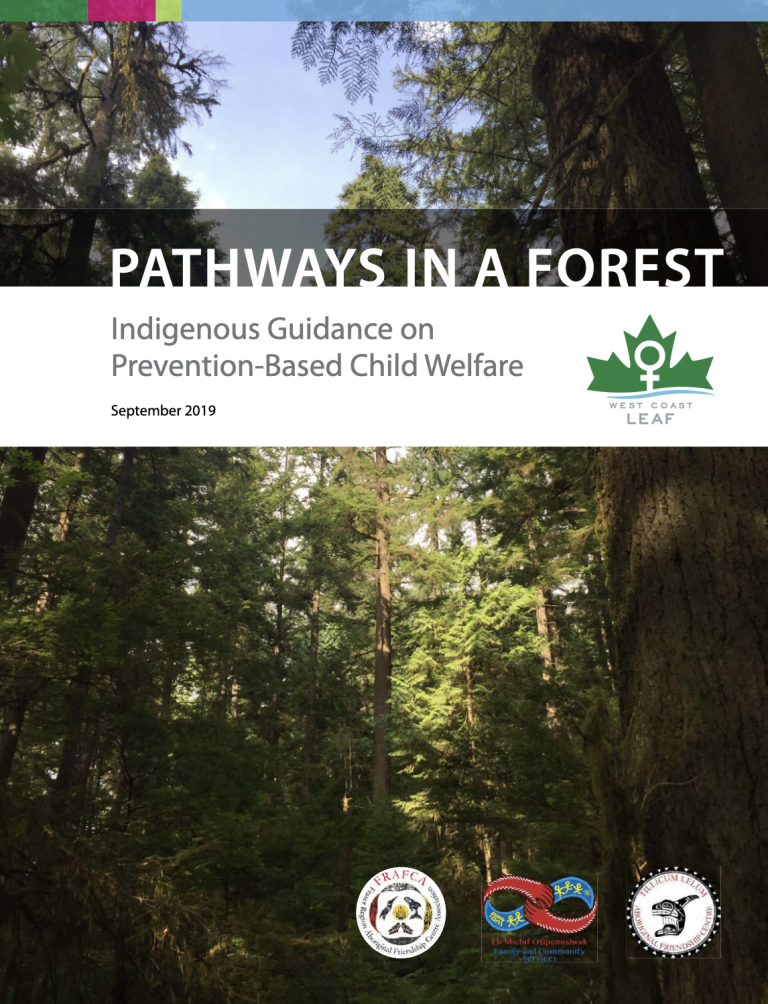12 search results
for
Indigenous Peoples
Recommendations for systemic reform
Recommendation 1: The BC government should work with Indigenous communities to undertake a comprehensive and transparent assessment of the steps that need to be taken to address the disparities in the social determinants of health for Indigenous peoples in BC.-
Category and theme:
Audience:
Groups affected:
Recommendations for systemic reform
Recommendation 3: The BC Human Rights Commission should undertake a review/inquiry into MCFD culture, training, policies, procedures, practices, and accountability mechanisms to assess whether MCFD policy and practice is in line with the Human Rights Code.-
Category and theme:
Audience:
Groups affected:
Recommendations for legislative reform
Recommendation 4: MCFD should undertake a comprehensive legislative review of the CFCSA in order to bring the provincial child welfare standards in line with the federal minimum standards. It is essential that Indigenous communities and Nations are adequately consulted in the review process.-
Category and theme:
Audience:
Groups affected:
Recommendations for legislative reform
Recommendation 5: MCFD should amend the guiding principles of the CFCSA to ensure that children’s rights are not viewed as hierarchical but interdependent. The guiding principles should reflect the holistic nature of children’s rights including the right of the child to maintain relationships with their family and community, the child’s right to support services, and the importance of maintaining the child’s relationship to their culture.-
Category and theme:
Audience:
Groups affected:
Recommendations for legislative reform
Recommendation 8: MCFD should, in consultation with Indigenous communities and Nations, amend legislated timelines to allow for an opportunity to develop creative family plans.-
Category and theme:
Groups affected:
Recommendations for improving prevention-based efforts
Recommendation 19: The BC government and MCFD should increase preventative program funding to Indigenous communities for existing or new promising practices. Funding must be equitable, sustained and long-term, and cover the delivery of holistic services as identified by communities. Funding should cover services such as:- Human resource needs of community-based groups including issues with retention, burn out, inequity in pay scales etc.
- In-home support
- Pregnancy support and baby welcoming programs
- Transition support programming for families after children have been removed or upon being returned home
- Supports for parents whose children are in care
- Provide in-home support immediately as a tool to prevent removal
- Funding for cultural programming that is consistent and frequent
-
Category and theme:
Audience:
Groups affected:
Recommendations for improving prevention-based efforts
Recommendation 21: The BC government and MCFD should work with Indigenous communities to fund and develop comprehensive services for families that are experiencing violence including services for abusive men and services for the entire family. These services should address intersecting needs including historical trauma, parenting skills, and substance use.-
Category and theme:
Audience:
Recommendations for improving prevention-based efforts
Recommendation 22: MCFD should work with community-based groups to develop safety and risk assessment tools that are adapted in order to recognize the unique cultures and ways of life of Indigenous communities across BC.-
Category and theme:
Groups affected:
Recommendations for improving prevention-based efforts
Recommendation 25: Children in temporary care must be kept within an accessible distance to the parent with due consideration to the parents’ circumstances (financial etc). Where a child needs to be close to their home nation, parents must be given financial supports to ensure that there is adequate access to maintain family connection.-
Category and theme:
Audience:
Groups affected:
Recommendations for improving prevention-based efforts
Recommendation 26: MCFD should work with community-based organizations to assess creative ways that social workers could be placed directly within community including mechanisms that would need to be put in place to ensure this does not undermine the relationship of trust between community and families (i.e this may include frontline workers focusing only on prevention and no apprehension).-
Category and theme:
Audience:
Groups affected:
